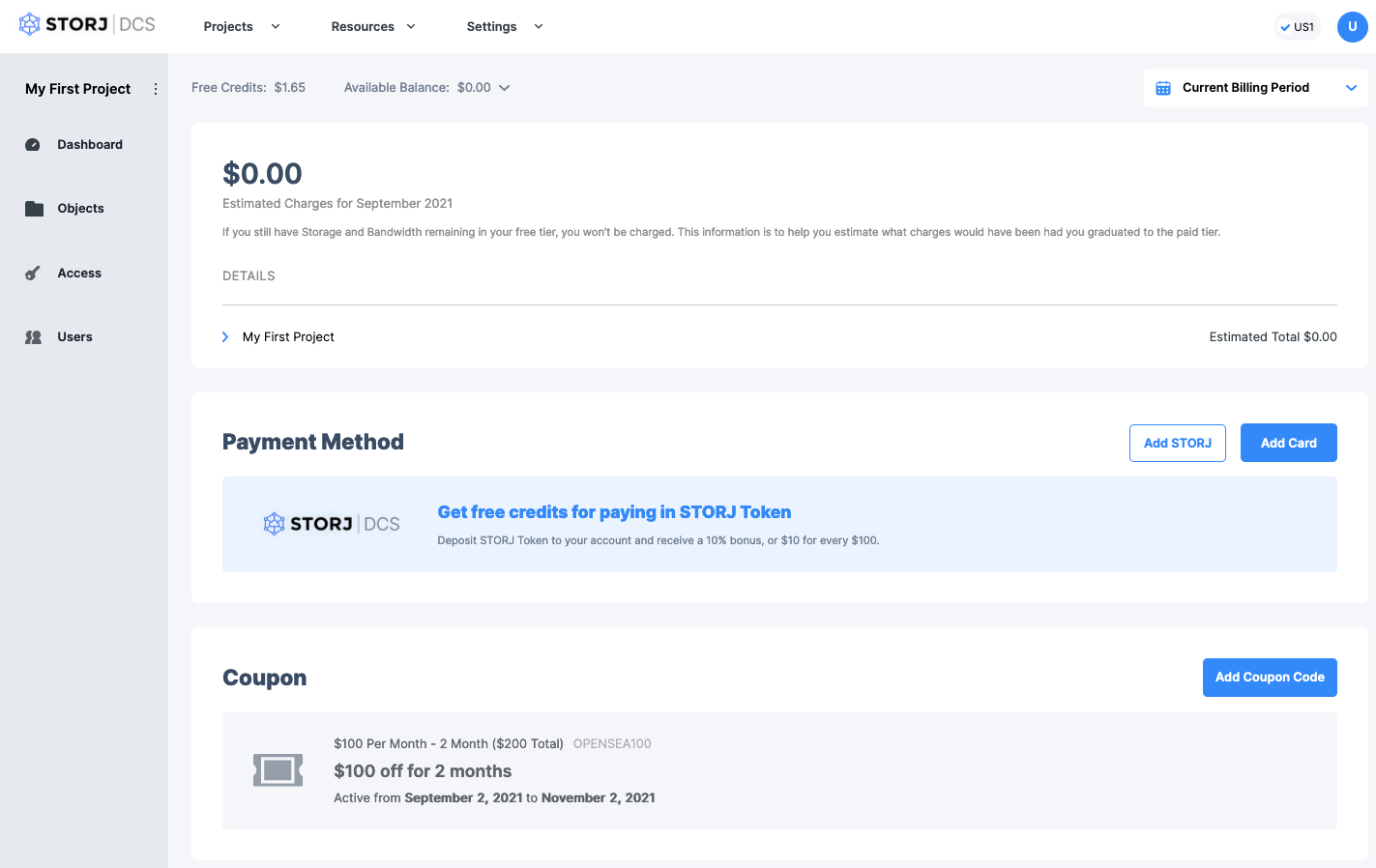NFT storage for OpenSea
Storj makes it easy for NFT (Non-Fungible Token) creators and developers to store their digital art, music, and videos on the decentralized cloud via Storj.
Getting Started with NFT Storage on Storj
In this tutorial, we’re going to cover three main steps:
Upload your Digital Asset to Storj
Create a public LinkShare link to your digital asset
Register your NFT with the link to the asset
Before we get started, here’s some background information on NFTs for context. Or skip the background andNFT storage for OpenSea
Background
This tutorial covers a couple of approaches for developers and creators minting Non-Fungible Tokens (NFTs) for digital assets, to store and serve those digital assets from Storj, the leading decentralized cloud storage provider. In this example, we’re going to use OpenSea for the NFT registration. In principle, the same method could also be applied to storing NFTs issued on any of the other available NFT minting platforms.
Right now, any OpenSea developer can use the coupon code OPENSEA100 for $100 in STORJ Credit. This would be useful to any developer who signs up to use Storj with the OpenSea SDK and wants to grow beyond our free 50GB tier. This promotion is available to the first 100 developers to register the coupon code on any Storj Satellite account, and is good for two billing cycles. The coupon code is redeemable until December 31st, 2021.
NFTs enable developers and creators to register ownership of a unique digital asset on the blockchain. NFTs are best understood as providing digitally native ownership of images, videos, or PFPs (Profile Pictures), or can be digital representations of asset ownership for real estate etc.
An NFT is just a registration of ownership - for digital objects, owners need a secure, decentralized method to store the associated jpg, mp4, or other files the NFT is to be associated with. Storj provides secure, private storage on the decentralized cloud that is ideal for NFTs:
Fully encrypted data and metadata for digital assets
Multiple options for developing web or mobile apps for storing and sharing digital assets
Ultra-secure and private file sharing options
Simple public sharing URLs with revocable access
Native support for media streaming
What is OpenSea?
OpenSea is an open marketplace and developer toolkit for NFTs. NFTs are blockchain tokens associated with a cryptographic keypair to represent ownership of unique items.
What are NFTs?
NFT contracts such as ERC721 and ERC1155, let us tokenize things like art, collectibles, and even real estate. They can only have one official owner at a time and, in case of ERC721 and ERC1155, are secured by the Ethereum blockchain – no one can modify the record of ownership or copy/paste a new NFT into existence.
What does the OpenSea SDK do?
The OpenSea SDK enables developers to easily access the OpenSea orderbook, filter it, create buy orders (offers), sell orders (auctions) or collections of assets to sell at once (bundles), and to complete trades programmatically.
Why would I store my NFT on the decentralized cloud?
It’s more available than centralized alternatives like AWS (data stored on Storj is broken into redundant erasure codes across the globe)
Storj is faster than Kademlia-based networks (like BitTorrent or IPFS)
It’s 80% less expensive than Amazon S3
Tutorial
If you haven’t already registered for a Storj account, you're going to need to take care of that upfront. Create Your Account.
Now that you’ve got your account squared away, let’s upload your digital asset and create a linkshare link. For this tutorial, we’re just going to use the web interface in the Satellite admin console, but you can also use our share, one of the SDKs, our Storj-hosted S3 Compatible Gateway, or an app like FileZilla Native Integration or Rclone
If you want a little more context about the different components and constructs in Storj, you can read Key Architecture Constructs.
Okay, let’s do this.
Create a Storj account
Create a Dashboard
Navigate to Object Browser
Create a Bucket
Upload a file by dragging and dropping your digital asset into the bucket via the browser
Generate a Linkshare for URL hosting using Storj Object Browser or CLI share command
Click the 3 dot button to the right of your object and choose Share
Click Generate Share Link
Copy the Share Link and click Done
You can interact with your digital asset across the Decentralized Cloud in a number of ways
To download content directly, use /raw/ in the Linkshare URL ex: https://link.us1.storjshare.io/raw/ju34skavohcqezr6vlfgshg5nmjq/dwebdemo/isthataquestion.mp4
To view the digital asset in the object map that shows the location of the storage nodes storing the encrypted and erasure-coded pieces, use /s/ in the Linkshare URL ex: https://link.us1.storjshare.io/s/ju34skavohcqezr6vlfgshg5nmjq/dwebdemo/isthataquestion.mp4
Create the NFT on OpenSea and use the raw content link as external link for NFT Metadata
- Use the OpenSea GUI: OpenSea Collections
Or developer SDK here: OpenSea Docs: Adding Metadata
